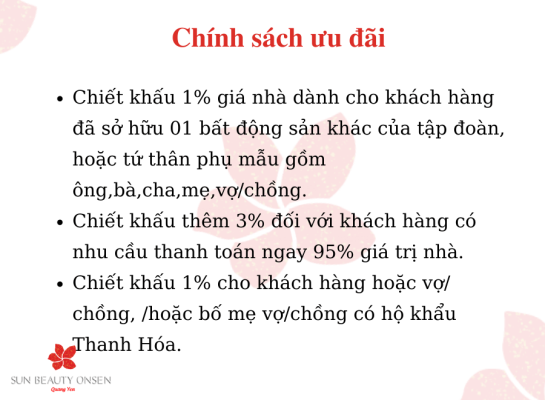- Turbulence & Transformation: Understanding Today’s Vital News and Global Developments.
- The Evolving Landscape of Global Information
- The Importance of Media Literacy
- Identifying Bias in Reporting
- Fact-Checking Resources and Tools
- The Role of Journalism in a Democratic Society
- The Impact of Technology on News Consumption
- The Future of News Delivery
- Navigating the Digital Information Age Responsibly
Turbulence & Transformation: Understanding Today’s Vital News and Global Developments.
In an era defined by instant communication and interconnectedness, staying informed about current events is more critical than ever. The rapid dissemination of information, often referred to as news, shapes public opinion, influences policy decisions, and impacts our daily lives. Understanding the nuances of global developments requires a discerning approach, moving beyond fleeting headlines to engage with in-depth reporting and analysis. This article delves into the critical importance of comprehensive news consumption, exploring the complexities of the modern information landscape and offering guidance on how to navigate it effectively.
The modern media landscape is characterized by an unprecedented volume of information. Traditional news sources are now complemented, and often challenged, by social media platforms, blogs, and citizen journalism. This abundance presents both opportunities and challenges. While access to diverse perspectives has expanded, so has the risk of misinformation, bias, and sensationalism. Being able to critically evaluate sources, identify credible reporting, and understand the underlying context of events is paramount in this environment.
The Evolving Landscape of Global Information
The way we receive information has undergone a dramatic transformation in recent decades. The dominance of print and broadcast media has given way to digital platforms, creating a 24/7 news cycle. This immediacy, while convenient, can sometimes prioritize speed over accuracy. Furthermore, the rise of algorithms and personalized news feeds creates the potential for “filter bubbles,” where individuals are only exposed to information that confirms their existing beliefs. Breaking free from these bubbles and actively seeking out diverse perspectives is essential for a well-rounded understanding of the world.
The rise of social media has further complicated the information ecosystem. Platforms like Twitter and Facebook have become significant sources of news for many people, but they also facilitate the spread of misinformation and propaganda. The ease with which false or misleading content can be shared online presents a serious challenge to informed public discourse. It is crucial to verify information before sharing it and to be aware of the potential for manipulation and bias.
| Traditional News Websites | In-depth reporting, investigative journalism | Credibility, fact-checking, editorial oversight | Can be slower to update, may have paywalls |
| Social Media (Twitter, Facebook) | Real-time updates, breaking news | Speed, accessibility, diverse perspectives | Misinformation, bias, filter bubbles |
| Blogs & Citizen Journalism | Niche topics, alternative perspectives | Independent voices, grassroots reporting | Lack of editorial oversight, potential for bias |
The Importance of Media Literacy
In the age of information overload, media literacy is more important than ever. This encompasses the ability to critically analyze news sources, identify bias, and distinguish between fact and opinion. A key component of media literacy is understanding the economic and political forces that shape the news. Media organizations are businesses, and their coverage can be influenced by ownership, advertising revenue, and political agendas. Recognizing these influences is essential for interpreting news with a critical eye.
Cultivating media literacy also involves developing a healthy skepticism towards information encountered online. Before sharing an article or social media post, take the time to verify its accuracy by checking multiple sources. Be wary of emotionally charged headlines and sensational claims. Look for evidence-based reporting and seek out perspectives from diverse sources. By actively engaging with information in a critical and thoughtful manner, individuals can become more informed and responsible consumers of news.
Identifying Bias in Reporting
Bias is inherent in all forms of communication, but it is particularly important to recognize in news reporting. Bias can manifest in various ways, including the selection of stories, the framing of issues, the use of language, and the inclusion or exclusion of certain perspectives. Understanding the different types of bias – such as confirmation bias, selection bias, and framing bias – can help you to identify instances where news coverage may be skewed. It is critical to look for diverse sources, investigate the background and affiliations of the journalist or newsroom, and assess whether all sides of the story have been presented fairly. Remember, neutral reporting is a goal, but complete objectivity is often unattainable.
Fact-Checking Resources and Tools
Fortunately, there are numerous resources available to help consumers verify the accuracy of information. Fact-checking websites, such as Snopes, PolitiFact, and FactCheck.org, dedicate themselves to debunking misinformation and exposing false claims. These resources provide nonpartisan assessments of news stories and political statements. Additionally, many news organizations have established fact-checking departments to ensure the accuracy of their own reporting. Utilizing these tools and resources can significantly improve your ability to discern truth from falsehood in the information landscape. Remember to cross-reference information from multiple sources before making judgments.
The Role of Journalism in a Democratic Society
A free and independent press is a cornerstone of any democratic society. Journalism plays a vital role in holding power accountable, informing the public, and facilitating civic engagement. Investigative journalism, in particular, is essential for uncovering corruption, exposing abuses of power, and promoting transparency. However, the journalism industry is facing increasing challenges, including declining revenues, budget cuts, and political pressures. This has led to a decline in local news coverage and a rise in “news deserts” – communities with limited access to reliable information.
Supporting quality journalism is crucial for maintaining a healthy democracy. This can involve subscribing to reputable news organizations, donating to non-profit news outlets, and advocating for policies that protect press freedom. It also means being a discerning consumer of news, actively seeking out credible sources, and holding media organizations accountable for their reporting. The health of our democracy depends on an informed citizenry and a vibrant, independent press.
- Support Local Journalism: Subscribe to your local newspaper or public radio station.
- Be a Critical Consumer: Question everything, verify information, and seek multiple perspectives.
- Engage in Civic Dialogue: Talk to your friends, family, and community members about important issues.
- Advocate for Press Freedom: Support policies that protect the rights of journalists.
The Impact of Technology on News Consumption
Technology continues to reshape the way we consume news. Mobile devices, social media, and streaming services have made it easier than ever to stay informed, but they have also created new challenges. The algorithmic curation of news feeds can reinforce existing biases and limit exposure to diverse perspectives. The rise of “fake news” and disinformation campaigns poses a serious threat to public trust and democratic institutions. Addressing these challenges requires a multi-faceted approach, including media literacy education, algorithmic transparency, and stronger regulations on social media platforms.
Artificial intelligence (AI) is also playing an increasingly important role in the news ecosystem. AI-powered tools are being used to automate newsgathering, personalize news recommendations, and detect misinformation. However, AI also raises new ethical concerns, such as the potential for algorithmic bias and the spread of deepfakes – highly realistic but fabricated videos. Ensuring that AI is used responsibly and ethically is essential for maintaining trust in the news and safeguarding the integrity of the information landscape.
The Future of News Delivery
The future of news delivery is likely to involve a combination of traditional and emerging technologies. We can expect to see greater use of immersive storytelling techniques, such as virtual reality and augmented reality, to create more engaging and informative news experiences. Personalized news recommendations will become even more sophisticated, tailoring content to individual interests and preferences. Blockchain technology may offer new ways to verify the authenticity of news sources and combat disinformation. The key will be to leverage technology in ways that enhance, rather than undermine, the principles of journalistic integrity and democratic discourse. This also includes addressing the digital divide, ensuring equitable access to information for all members of society.
Navigating the Digital Information Age Responsibly
Successfully navigating the digital information age demands a proactive and mindful approach to news consumption. This means actively seeking out credible sources, cross-referencing information, and being aware of the potential for bias. It also means supporting quality journalism, advocating for media literacy education, and holding social media platforms accountable for the spread of misinformation. By embracing these principles we can help to ensure that information remains a force for good in the world, empowering citizens to make informed decisions and participate fully in the democratic process
- Verify the Source: Check the reputation of the news organization and the author.
- Read Beyond the Headline: Don’t judge an article based on its title alone.
- Cross-Reference Information: Compare the story with reports from other news sources.
- Be Wary of Emotional Appeals: Emotional headlines and language can be a sign of bias.
- Consider the Date: Make sure the news is current and relevant.
Staying well-informed in today’s world requires constant vigilance and a commitment to seeking truth and understanding. The ability to decipher reliable information from misinformation is a skill that is vital, not just for individuals but for the health of our societies.



























